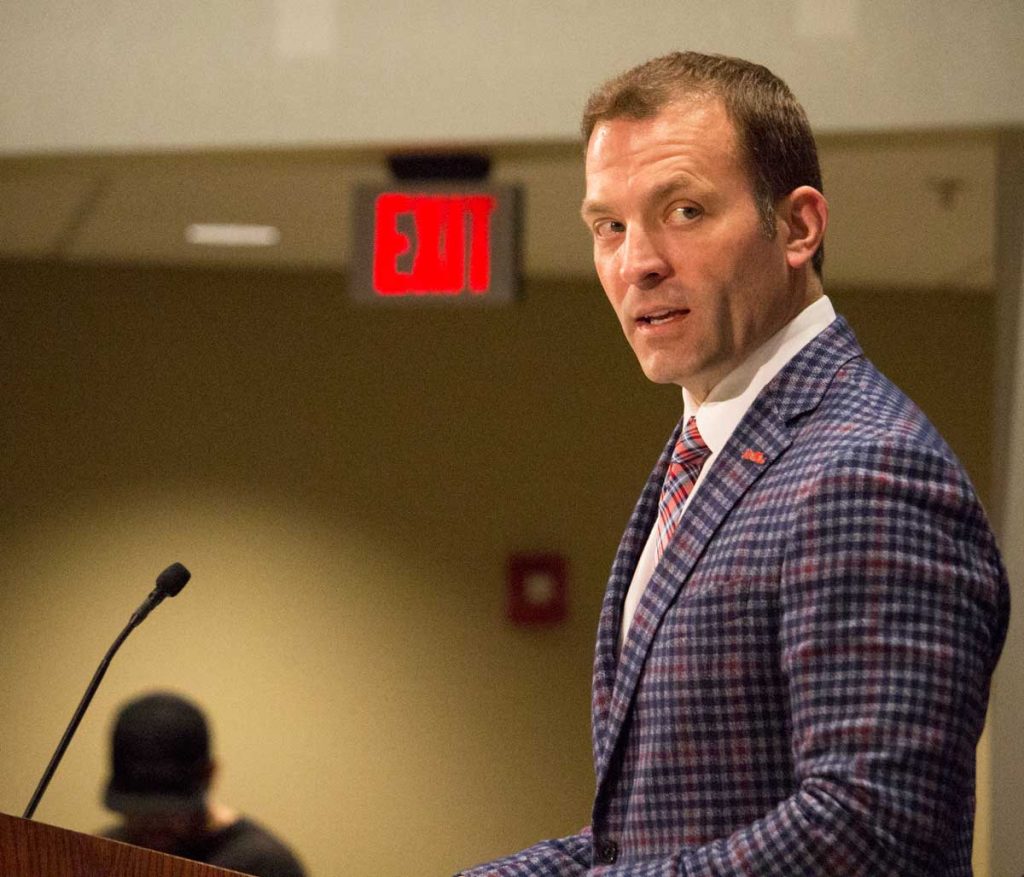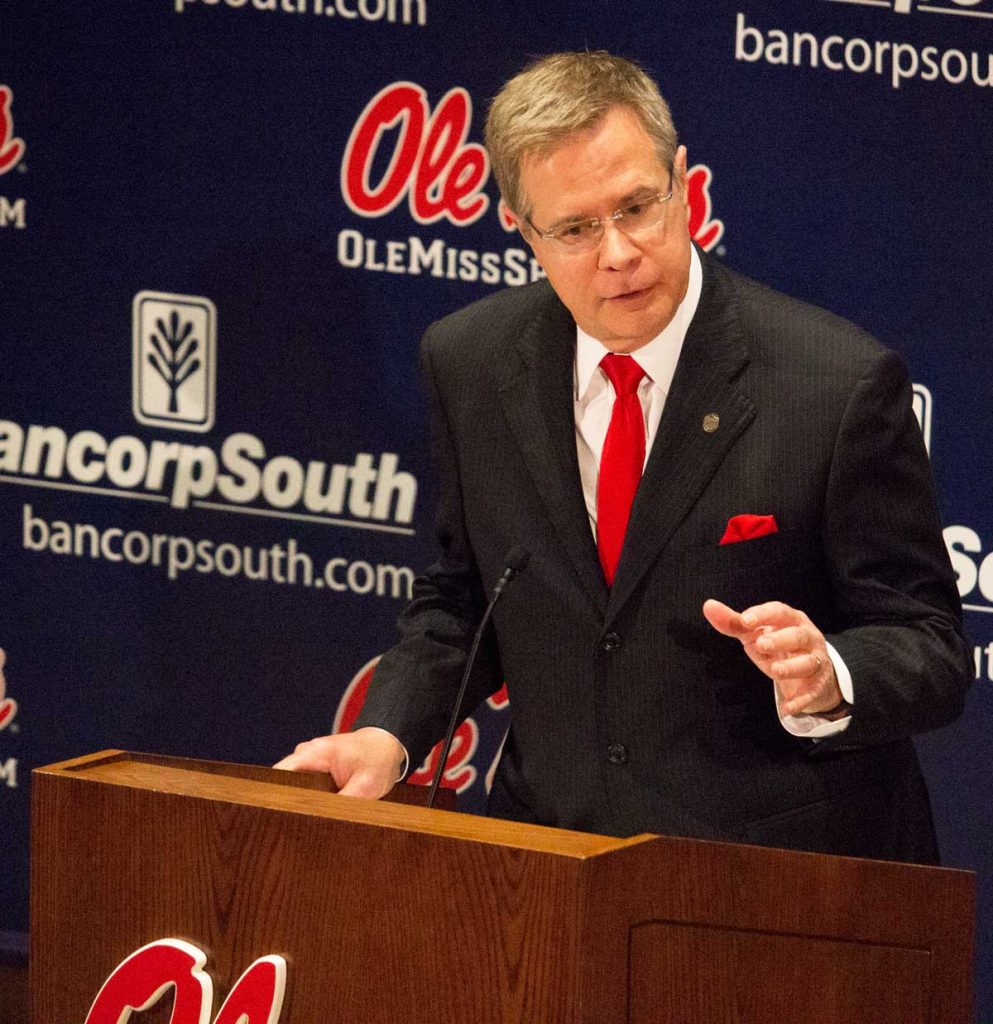Today marked a big day for the Ole Miss football program, as it finally received the verdict on its NCAA infractions case. The Committee on Infractions’ investigation into failure to monitor by former head coach Hugh Freeze, the university’s recruiting conduct and lack of institutional control was met with the punishments of fines totaling in $179,000, the loss of 13 scholarships over four years, four-year probation and a postseason ban for 2018 in addition to the self-imposed 2017 ban.
In their press conference addressing the ruling, Chancellor Jeffrey Vitter and athletics director Ross Bjork were accepting of the probation, loss of scholarships and fine. All of these were addressed in self-imposed bans enacted by the university early in 2017. Vitter and Bjork disagreed with the additional bowl ban.

Ross Bjork looks to the side of the room as he explains the grievances he has with the NCAA and the COI ruling. The NCAA accepted all sanctions Ole Miss imposed on itself and added an additional bowl game ban in 2018. Photo by Billy Schuerman
“We are deeply disappointed and angered by the additional penalty of the 2018 postseason ban,” Vitter said. “It is simply not warranted and based on fundamental flaws in the NCAA case.”
Because the university believes there were flaws in the investigation, Vitter and Bjork both stated the intention of “vigorously” appealing the second-year ban.
Former Rebel Laremy Tunsil brought forth more allegations against members of the athletics department and football program on the night of the 2016 NFL Draft when addressing a question about the corruptness of the NCAA. Vitter said he believes that night changed the course of the investigation.
“Just before the draft in 2016, the course of this investigation changed,” Vitter said. “The entire conduct (of the investigation) went from one of cooperation to one where we were shut up. Where information that should have been obvious to pursue, was not. When the facts became known to us, that information was no longer available to us.”
Another glaring flaw that the university’s hierarchy pointed to was the committee’s reference to earlier NCAA cases against the university that dated back to 30 and 40 years ago. The COI cited these past cases as evidence of a lack of institutional control. In response, both Vitter and Bjork referenced that Ole Miss is one of only three SEC schools to not be found guilty of infractions in the last 20 years.
“When you cite cases from 30 years ago, that is not part of the process,” Bjork said. “We think that is unprecedented to be a part of this.”

Chancellor Jeffrey Vitter expresses his grievances with the additional sanctions laid out by the COI. The NCAA accepted all sanctions Ole Miss imposed on itself and added an additional bowl ban in 2018. Photo by Billy Schuerman
In addition to the postseason ban and loss of scholarships, the NCAA will vacate wins in which ineligible players were active, but the exact wins are not known at the time and are being assessed by the university.
Bjork said the university would begin the appeals process for the postseason ban as quickly as possible. The university has 15 days to formally submit its intention to appeal to the NCAA, and the process is expected to take three to six months.
Due to the extended postseason ban, players with one year of eligibility left will have the ability to transfer freely to another university without sitting a year. Bjork said other schools have already approached the eligible players in efforts to “poach” them, but has not been approached by any players that currently desire to transfer.
Now that the lengthy investigation by the NCAA Committee on Infractions has finally come to an end, the presence of doubt in Oxford is finally gone. However, both Vitter and Bjork want it to be known that this is not over yet. The university believes the players and the team should not be forced to suffer for another season, and it will fight through the appeals process for them.






